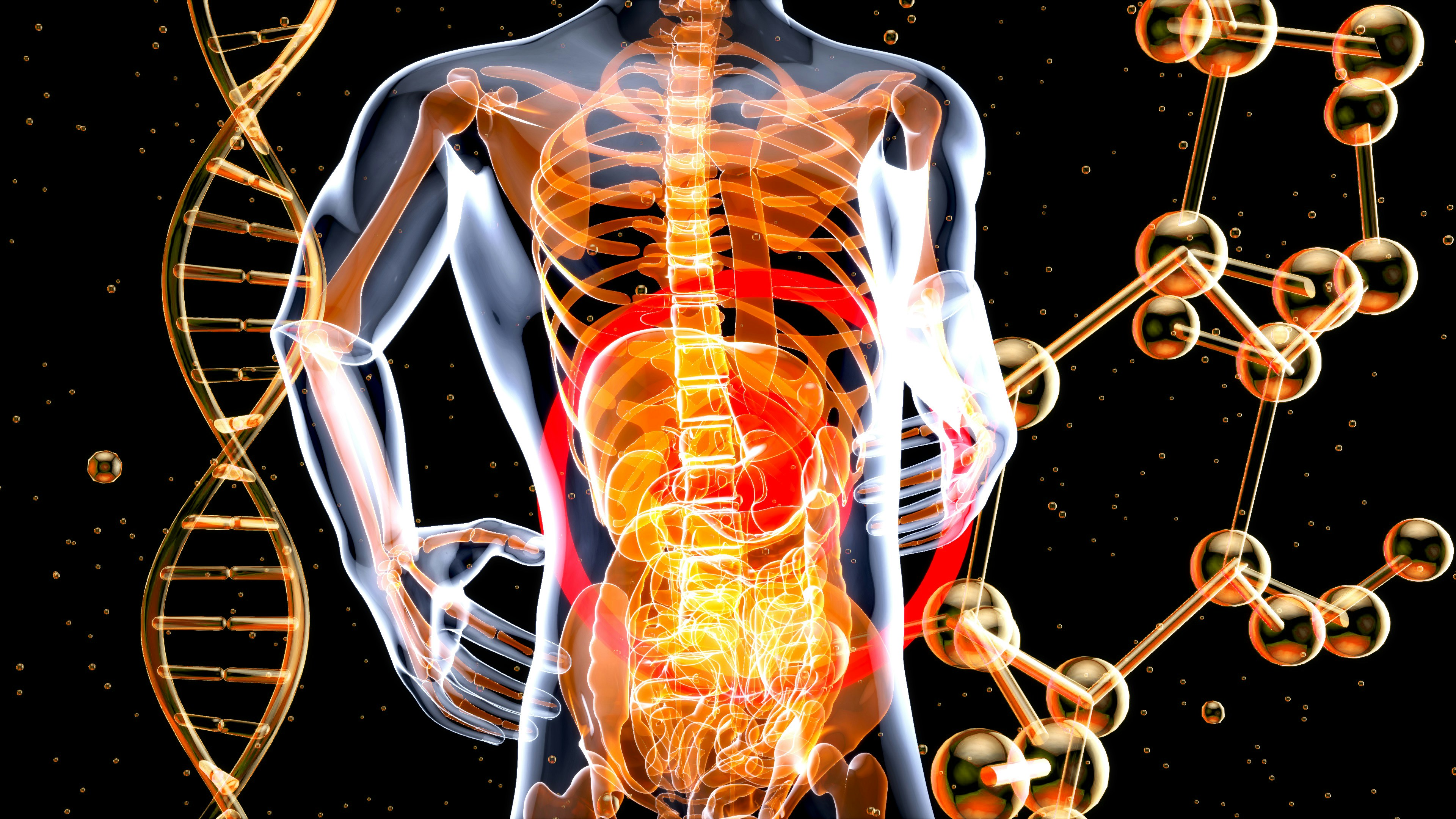How to Stop Feeling Exhausted in Menopause—The Truth About Hormones & Fatigue
Chronic fatigue is a pervasive issue among menopausal women, often dismissed as a mere consequence of aging or hormonal shifts. However, functional medicine delves deeper, exploring underlying causes such as hormonal imbalances, gut health disturbances, and systemic inflammation. This comprehensive approach not only addresses symptoms but also targets root causes, offering sustainable relief and improved quality of life.
Understanding Menopause and Chronic Fatigue
Menopause signifies the end of a woman's reproductive years, marked by the cessation of menstruation and a decline in estrogen and progesterone levels. These hormonal changes can lead to various symptoms, including hot flashes, mood swings, and notably, chronic fatigue. The fatigue experienced during menopause is often profound, affecting daily activities and overall well-being.
How to Lose Weight During Menopause: A Holistic Approach
Functional medicine offers a patient-centered approach, focusing on identifying and addressing the root causes of health issues rather than merely treating symptoms. By considering the intricate interplay between hormones, gut health, and inflammation, functional medicine practitioners develop personalized treatment plans to alleviate chronic fatigue in menopausal women.
Hormonal Imbalances and Fatigue
The decline in estrogen and progesterone during menopause significantly impacts energy levels. Estrogen influences the regulation of cortisol, the body's primary stress hormone. A decrease in estrogen can lead to elevated cortisol levels, resulting in increased fatigue. Additionally, progesterone has a calming effect on the brain; reduced levels may contribute to sleep disturbances, further exacerbating fatigue.
Moreover, hormonal imbalances can affect thyroid function. The thyroid gland regulates metabolism, and its dysfunction can lead to symptoms such as fatigue, weight gain, and depression. Addressing thyroid health is crucial in managing chronic fatigue during menopause.
Gut Health and Its Role in Energy Levels
The gut microbiome plays a pivotal role in overall health, influencing digestion, immunity, and even mood. Emerging research suggests a strong connection between gut health and energy levels. An imbalance in gut bacteria, known as dysbiosis, can lead to increased intestinal permeability or "leaky gut," allowing toxins to enter the bloodstream and trigger systemic inflammation. This inflammatory response can contribute to chronic fatigue.
Furthermore, the gut is responsible for the production of neurotransmitters such as serotonin, which regulates mood and sleep. An unhealthy gut can disrupt serotonin production, leading to sleep disturbances and fatigue. Addressing gut health is, therefore, a critical component in managing chronic fatigue.
Inflammation: The Silent Contributor
Chronic inflammation is a common underlying factor in many health conditions, including fatigue. During menopause, hormonal changes can lead to increased inflammatory markers in the body. This inflammation can affect various systems, including the central nervous system, leading to feelings of fatigue and lethargy.
Functional medicine aims to identify sources of inflammation, which may include dietary factors, environmental toxins, or chronic infections. By addressing these sources, practitioners can reduce inflammation and alleviate fatigue.
Integrative Strategies for Managing Chronic Fatigue
A comprehensive approach to managing chronic fatigue during menopause involves addressing hormonal imbalances, optimizing gut health, and reducing inflammation. Functional medicine practitioners may recommend the following strategies:
1. Hormone Replacement Therapy (HRT)
HRT can help restore hormonal balance, alleviating symptoms such as hot flashes and fatigue. However, it's essential to tailor HRT to individual needs and consider potential risks and benefits.
2. Nutritional Interventions
A diet rich in anti-inflammatory foods, such as omega-3 fatty acids, antioxidants, and fiber, can support gut health and reduce inflammation. Probiotics and prebiotics may also be beneficial in restoring a healthy gut microbiome.
3. Stress Management
Chronic stress can exacerbate hormonal imbalances and inflammation. Incorporating stress-reduction techniques such as mindfulness, yoga, or meditation can improve overall well-being and energy levels.
4. Physical Activity
Regular, moderate exercise has been shown to reduce fatigue and improve mood. It's important to tailor exercise programs to individual capabilities and preferences.
5. Sleep Optimization
Addressing sleep disturbances through good sleep hygiene practices or natural supplements can significantly impact energy levels and reduce fatigue.
Conclusion
Chronic fatigue during menopause is a multifaceted issue that extends beyond simple rest. Functional medicine offers a holistic approach by addressing hormonal imbalances, gut health, and inflammation, providing a comprehensive strategy for alleviating fatigue and enhancing quality of life.
If you're struggling with fatigue, it's crucial to find the root cause. Book a consultation with a functional medicine practitioner to embark on a personalized journey toward renewed energy and vitality.
Sources:
Functional Medicine and Menopause: Dr. Sobia Khan from the Cleveland Clinic discusses how functional medicine can alleviate menopause symptoms, including chronic fatigue.
Trait Energy and Fatigue May Be Connected to Gut Bacteria: A study suggesting that energy and fatigue are unique traits defined by distinct bacterial communities, highlighting the role of gut health in fatigue.
The Dynamics of Stress and Fatigue Across Menopause: This study evaluates the regulatory dynamics between stress and fatigue experienced by women during the menopausal transition.
Gut Inflammation in Chronic Fatigue Syndrome: Research indicating that many chronic fatigue syndrome patients report gut dysfunction, linking gut health to fatigue.
Healthy Nutrition at Menopause: The Institute for Functional Medicine explores how health and nutrition are key factors for women's health during menopause and in reducing postmenopausal chronic disease.
The Impact of Stress on Gut Health: This article discusses the close interaction between the gut microbiome and the body's neurologic and hormonal responses to stress.
Gynecological History in Chronic Fatigue Syndrome: A population-based study examining gynecological history events as risk factors for chronic fatigue syndrome, noting its higher prevalence during perimenopause.
Unveiling the Intricate Link Between Leaky Gut and Hormone Imbalances: An exploration of how poor gut health can trigger chronic inflammation, disrupting hormone-producing glands and leading to imbalances.
Lifestyle Approaches for Maintaining Optimal Health and Wellness: The Institute for Functional Medicine discusses how lifestyle therapies, such as nutrition and exercise, help support optimal health during perimenopause.
Your Gut Health and Hormones: 7 Ways They're Connected: An article detailing how chronic inflammation has been linked to disruptions in cortisol levels, sex hormones, and thyroid hormones.
Menopause Relief Through Functional Medicine: An exploration of the role of functional medicine in providing menopause relief, focusing on diet, nutrition, and lifestyle modifications.
Clinical Evidence of the Link Between Gut Microbiome and Myalgic Encephalomyelitis/Chronic Fatigue Syndrome: A comprehensive overview of recent advancements in understanding the role of the gut microbiome in chronic fatigue syndrome patients.
European Journal of Medical Research
Menopause Symptoms: Here's How Functional Medicine Helps: An article discussing how functional medicine takes a uniquely helpful approach by finding the root cause and treating the whole person for menopause symptoms.
How Your Gut Health Impacts Your Hormones: An exploration of how gut health plays a crucial role in controlling inflammation, which can disrupt hormone production and function.
Navigating Menopause: Functional Hormones, Libido, and Sexual Health: Dr. Anna Cabeca discusses her functional medicine approach to optimizing functional hormones and sexual health during the stages of menopause.
How Gut Health Affects Hormones: An article explaining how the gut, often called the "second brain," plays a crucial role in regulating the balance of hormones like estrogen, thyroid, cortisol, and insulin.
Articles
Discover our other articles
Explore our articles to know the best behavior about alimentation and well-being.
























